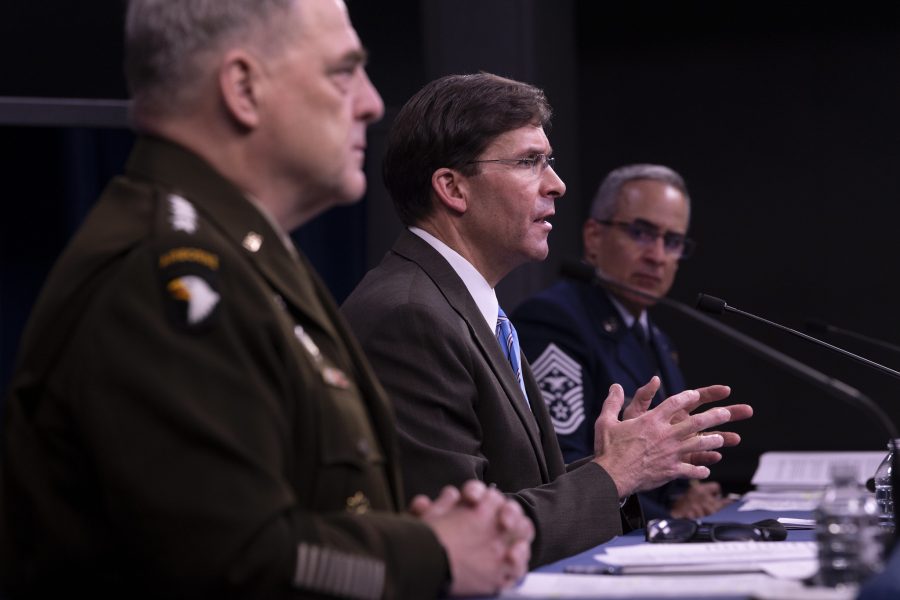The Pentagon is rolling back some of its stringent restrictions on travel, allowing for more permanent change of station moves and deployments, saying that the measures have largely spared the military from the COVID-19 outbreak.
“There’s been a lot of death, pain, suffering throughout the entire country,” Chairman of the Joint Chiefs of Staff Gen. Mark Milley said during a virtual town hall May 28. “So the Secretary and the Department of Defense took those measures that were very strict in order to protect the force, and to protect the families, and it was exactly the right thing to do. Those efforts have proven to be effective.”
The Pentagon in mid-March ordered movement of troops and families to stop, a step that meant longer deployments and prevented families from moving to new bases. During the town hall, Milley, Defense Secretary Mark Esper, and Senior Enlisted Advisor to the Chairman of the Joint Chiefs of Staff Ramón Colón-López faced repeated questions from service members and families about the extended impact of the stop movement order.
One soldier who has been deployed two months longer than planned expressed concerns about his extended time away from family.
“It’s for his safety, and for the safety of his family,” Milley said about the policy keeping forces in place. “In fact, it’s for the safety of all the force that we put in very, very strict travel restrictions.”
Since the COVID-19 pandemic begin, three uniformed service members have died of the disease caused by the new coronavirus. All told, there have been 9,352 cumulative cases, including military members, civilians, dependents, and contractors. Of these, 5,216 have recovered. Compared to the broader population, the military has not been impacted as greatly, Milley said.
With some positive trends, the military is starting to lift movement restrictions. Bases can begin accepting personnel if they meet a set of criteria that includes two weeks of sustained reduction in COVID-19 cases, according to new policy released last week.
In the near term, the Pentagon is also looking at shortening the amount of time personnel need to be in quarantine. Currently, forces quarantined for deployments, for example, remain in that position for 14 days, but the department is considering shortening that to 10 days, Esper said.
“We all want to get back to normal or a new normal as soon as possible,” Esper said. “We’ve all been cooped up at home. We’ve placed restrictions on our own movement. We’ve practiced, day in and day out, social distancing. Our families are feeling the same thing … We all face these unique situations. We are all anxious to get on with things as best we can as well. … It’s is all about protecting our force, our people.”
